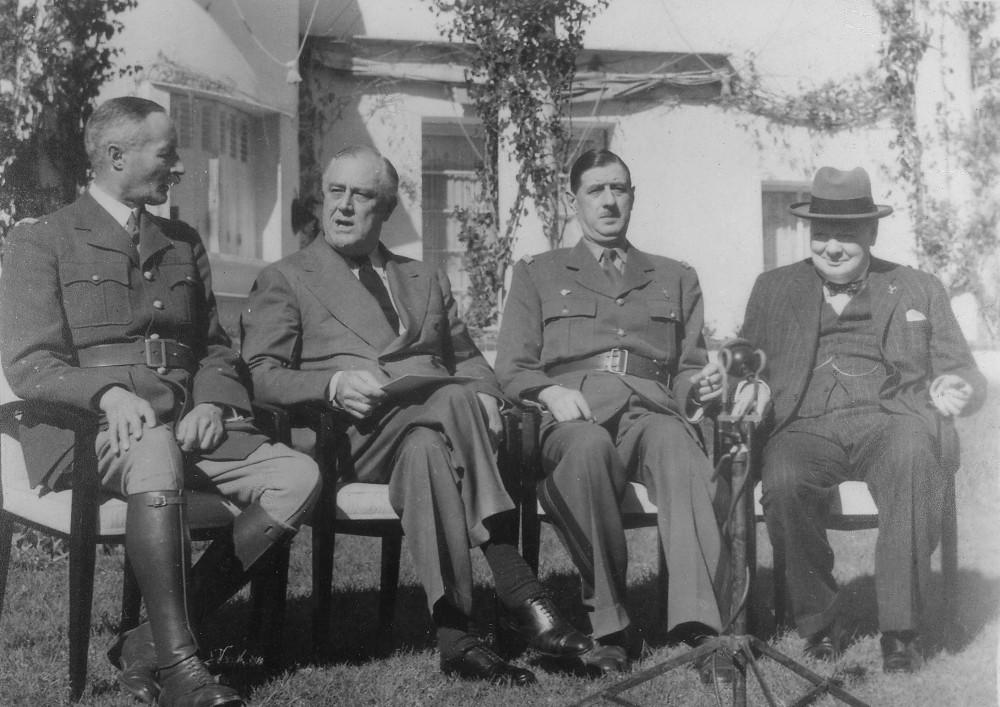Roosevelt disliked de Gaulle for the same reasons as other leaders in the free world. He was arrogant and selfish; thought he was the smartest man in the room; insisted on special treatment; created more problems than he solved, but for other reasons. He mainly believed that de Gaulle would use the war to become a dictator.

Elliott Roosevelt, in his book As He Saw It (New York, 1946), said that Franklin Roosevelt did not trust de Gaulle for three reasons: one related to the status of the French Empire, the other to the status of the French regime, and the third to the form of the French state after World War II.
President Roosevelt was shocked by France's sudden defeat in 1940. He believes that the collapse of the French political situation proves the instability and fragility of French politics. Since 1789, it has undergone several regime changes. As early as 1936, he told jesse i Strauss, the U.S. ambassador to France:
In more pessimistic moments, I have to believe in France and the future of France as much as you do – but always say to myself that in previous parties, France always abruptly "withdrew" from it. I must frankly admit that there is little basis for this optimism, for there have been several well-known events in the last one hundred and fifty years in which revolutions or similar events, as well as the emergence of some powerful individuals, have proved to be the only salvation. (Ed. F.D.R.: HIS PERSONAL LETTERS, NEW YORK: DUELL, SLOAN AND PEARCE, 1947, Vol. 3, III 555.)
According to Elliott, Roosevelt suspected de Gaulle as another Brownian or Neo-Bonapartist intent on using the war as a springboard to dictatorship. To quote Roosevelt: "De Gaulle was determined to achieve a one-man government in France. I can't think of anyone I trust more than he does. ”
Admittedly, Roosevelt was initially very willing to deal with non-republicans like Pétain and even Stalin, but he needed them. For example, Pétain seemed to hold the key to North Africa in the early days of the war, and Roosevelt wanted to attack German troops there with the support of France. Roosevelt didn't need de Gaulle, at least that's what he thought
In addition to the issue of regime, Roosevelt had reservations about France's viability. He proposed the possibility of creating a new state, "Wallonia", including the Wallonia region of northern France, Belgium, Luxembourg and Alsace-Lorraine. The incident led to a sharp disagreement between Roosevelt and de Gaulle, who euphemistically said was a staunch supporter of French unity. It's unclear whether de Gaulle knew the details of Roosevelt's consideration at the time, but he did say: "Fundamentally, what U.S. policymakers take for granted is the obliteration of France." (De Gaulle, Memoirs of War, New York, 1955, vol. II, p. 210.) De Gaulle once told Harry Hopkins, "The Impression of the French is that you no longer think that the greatness of France is necessary for the world and for you." This is one of his more modest statements.
As we all know, Roosevelt did not like Europe. At times, he saw de Gaulle as a puppet of Churchill, arguing that because Churchill provided a safe haven for the French, the prime minister "possessed" de Gaulle's "body, soul and braids". However, de Gaulle also angered Roosevelt because his actions were completely independent of Churchill's.
After the Attack on Pearl Harbor, the United States intended to negotiate with Vichy France on the use of Saint Pierre and two islands near Miquelon, Newfoundland. De Gaulle decided to force Roosevelt to choose between Free France and Vichy France, ordering Admiral Emile-Henri Muselier to seize the island. (He could take that risk because he knew american opinion preferred Free France to Vichy; Neither Britain nor Canada wanted Vichy to control the islands. Roosevelt had to acquiesce to the fact that De Gaulle and Musseller had established themselves locally. But Roosevelt was not a man who could accept with good cheers even a small defeat on the geopolitical chessboard. De Gaulle's refusal to cede French control of the French colonies to any of its allies would of course have led him to a conflict with Roosevelt and Churchill throughout the war.